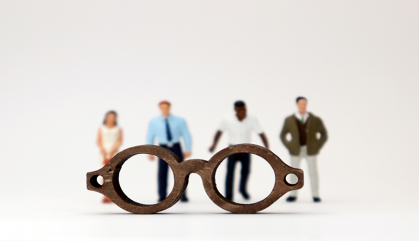Confrontation May Reduce White Prejudices, Rutgers Study Finds
Researchers examine the power of confronting biased statements

Confronting white people who make racist and sexist statements could reduce overall prejudicial behavior against women, African Americans and Latinos, according to a new Rutgers study on race and gender bias.
The study, published in the journal Social Psychological and Personality Science, suggests that when white men and women are confronted after expressing a bias about African Americans, Latinos and women, they are more likely to identify and regulate their own biases about race and gender.
“Many people are reluctant to confront instances of bias because they worry about backlash from others,” said Kimberly Chaney, a doctoral graduate student in social psychology at Rutgers University-New Brunswick’s School of Arts and Sciences. “But we found that confronting prejudice can be a powerful way to reduce not just one but multiple types of prejudice.”
“Confronting prejudice is a good first step in addressing prejudice in all its forms and to start a conversation about the multiple ways racism exists in our society, organizations and interactions,” said Chaney. “In general, we believe confrontations make people aware of prejudices that they may not have noticed before, and challenges them to be less prejudiced.”
The research included three different studies looking at the biases of white men and women and white men alone. They found that when you call out racism and sexism in general, it makes people who may direct their prejudicial remarks to one particular group stop making all racial and sexist statements.
In two of the studies, researchers found that when white men and women were confronted for using Black stereotypes, they made fewer negative remarks about Latinos and women and also fewer comments about Black people that they thought were positive but were actually stereotypical.
They also discovered that when white men were confronted online by strangers for using female role stereotypes, they made fewer negative statements about Blacks and Latinos than the white men who were not confronted about their sexist statements.
In the study, a group of 161 white college students was shown images of white and Black people. Three photos of Black men included descriptions intended to evoke stereotypical responses. “This man spends a lot of time behind bars” could lead to either a stereotypical response that he is a criminal or a neutral one that he works as a bartender.
Half of the study participants, who were verbally confronted and chastised for using a negative stereotype in their response about Blacks, as opposed to those who were not confronted about their negative responses, used significantly fewer stereotypes when asked about women.
In another part of the study, white men were confronted about believing without any proof that a nurse being discussed in an online scenario was a woman. Half of those who referred to the nurse as she were confronted and later asked to complete a task that could elicit negative stereotypes about Blacks and Latinos. Those confronted about their stereotypical beliefs of woman used fewer stereotypes when asked later about Black and Latinos than those who were not called out on their sexism.
“There is still a lot more to understand about confronting prejudice, including how it should be done, what you should say and when it will be most effective,” said study co-author Diana Sanchez, a professor of psychology. “Confronting someone is challenging, but we hope that knowing that it can be effective might make people more willing to step up."


